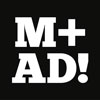
Australia-based car giants Holden and Kia have confirmed they have pulled their advertising from Google’s YouTube in response to reports of extremist and hate ads running alongside legitimate content.
The NZ branches of Holden & Kia have yet to make an announcement but – as most decisions of this nature would come out of Sydney – it seems a given that NZ would follow suit.
In the US, Johnson & Johnson pulled its ads on Friday, and JPMorgan Chase and Beam Suntory did the same over the weekend.
A spokesperson for Kia told the Australian Financial Review: “As of now, programmatic advertising has been suspended until such time as we can meet with Google to further clarify the application of this advertising.”
A Holden spokesperson said: “Holden in no way supports the content our advertising has been inadvertently associated with by Google. We’re proud of our diversity credentials.”
Boost for safer trad media
But Google’s loss could be traditional media’s gain, suggests AFR. “With programmatic digital advertising under the microscope and on the nose, brands could be looking for safer and more accountable medias such as television,” the paper said.
The Australian has reported that “many (local) clients are reallocating adbudgets to premium networks operated by traditional media companies because they can offer quality inventory in brand-safe environments”.
Omnicom view
“Digital media does have higher risk attached to it by definition,” Omnicom Australia ceo Peter Horgan told The Australian. “Any environment where a lot of user-generated content is being uploaded at scale is hard to categorise … we’re working closely with Google and YouTube on minimising risk.”
Google statement
Eric Schmidt, the former Google ceo and current chairman of its parent company Alphabet, said in an interview with Fox Business late last week that the company “can’t guarantee” ads will not appear against content its advertisers might find inappropriate.
“We match ads and the content, but because we source the ads from everywhere, every once in a while somebody gets underneath the algorithm and they put in something that doesn’t match,” Schmidt said. “We’ve had to tighten our policies and actually increase our manual review time, so I think we’re going to be OK.”
Share this Post


